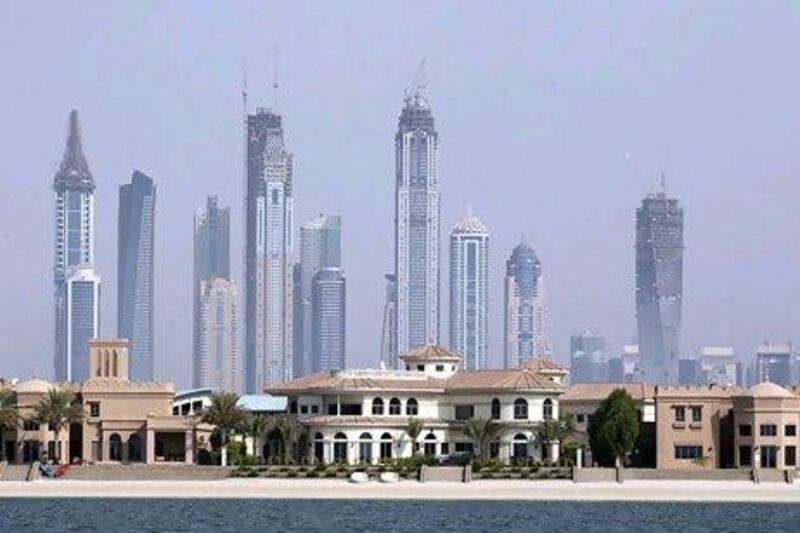Dubai aims to reshape its economy following the global financial crisis by swapping focus on its property sector to high-tech industry.
High-tech manufacturing would complement the emirate's existing "classical pillars" of the economy - trade, tourism and services, said Sami Al Qamzi, the director general of Dubai Department of Economic Development (DED).
"The high-end value of manufacturing might be tapped," he said. "If there's appetite, Dubai will definitely go in this direction."
In addition to focusing on sectors such as trade, tourism and services, the emirate will also "tap into new ventures of activities that will help the economy", Mr Al Qamzi said.
The Dubai Government and the federal Government, more broadly, will seek to woo global partners to help to transfer knowledge and technology here, he added, without providing further details.
Dubai is revising its 2015 strategic plan to reflect a more sober reality than the heady days of five years ago when the blueprint was first drawn up. The changes follow a downturn in the emirate's property market, triggered by the global recession. Property has since been dropped as one of the core areas of focus for Dubai's expansion. The property market in Dubai is "saturated", Mr Al Qamzi said.
While companies in Dubai make products ranging from bottled water to aluminium, the emirate has yet to become known as a producer of high-end goods.
Such products, including heavy equipment and electronic circuitry for other products, are credited with generating larger returns for businesses and economies. Officials would like to take advantage of the emirate's central location between Europe and Asia to plug into the global high-tech supply chain.
"We are part of the global economy and have full linkages between Asia, Europe, Latin America and the region through bilateral activities and trade," said Mr Al Qamzi.
He said Dubai was still finalising what new sectors it would like to develop. The plan will then be reviewed by the Dubai Executive Council before being published next month.
Manufacturing already accounts for about 15 per cent of the emirate's GDP and has been growing more than 10 per cent per year over the past decade. Of the other main sectors, trade represents 30 per cent, tourism including hotels and restaurants makes up 3.7 per cent and financial services 11 per cent, according to data from the DED.
In another sign that officials are taking a fresh look at the emirate's future, GDP goals are being revised. Previous annual growth targets of 11 per cent will be replaced with more modest goals of mid-single digit expansion.
"We need to take into consideration that we are in a totally different dilemma," said Mr Al Qamzi, "We are not in double digits, we are single digits".
The emirate's economy will grow 4.5 per cent this year, Sheikh Ahmed bin Saeed Al Maktoum, the chairman of the Dubai Economic Sector Committee, said in February. GDP returned to a positive footing in 2010 after falling 4.5 per cent in 2009, according to the Institute of International Finance.
But the outlook is picking up, economists say.
"Dubai is the biggest non-oil economy in the region. All the macro-economy indicators we have across most of the sectors have been doing fantastic," said Philippe Dauba-Pantanacce, a senior economist for Turkey, Middle East and North Africa at Standard Chartered.
twitter: Follow and share our breaking business news. Follow us
iPad users can follow our twitterfeed via Flipboard - just search for Ind_Insights on the app.





